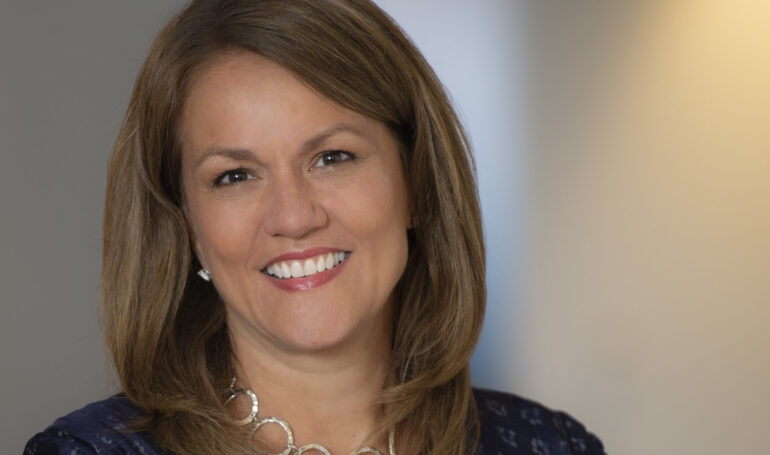Raise your hand if you have a 401k at work and wondering if you’re making the most of it? Or, if you’re not investing for retirement…yet…and wondering how to get started?
We have a special BONUS episode brought to us today by Mass Mutual. I’ve recently partnered with them to help spread literacy on the issues related to saving for retirement. We’re going to unpack a lot of learning today with Teresa Hassara, who leads the Workplace Solutions business at MassMutual, providing comprehensive financial wellness services, including retirement plans, to over 30,000 companies and about three million plan participants.
Teresa holds a B.A. from Vanderbilt University and earned her M.B.A. from the Wharton School of the University of Pennsylvania. She is a member of the Board of Directors for Jobs for the Future and an active supporter of a variety of organizations focused on mentorship for women and young people in under-resourced communities. She is also passionate about women’s leadership and investing.
To complement this interview, I also have a piece below on how women can financially secure their futures. For more check out www.massmutual.com.
5 Simple Ways for Women to Get on Target Toward Retirement
This article was sponsored by Massachusetts Mutual Life Insurance Company (MassMutual), Springfield, MA 01111-0001. www.massmutual.com All opinions are those of the author.
Gender wage disparity aside, there’s yet another financial gap women today face that threatens our future: retirement savings. A new study by Mass Mutual finds that women run a higher risk than men of being impoverished in old age. We’re expected to run out of savings five years too soon in retirement.
This may not come be a huge surprise, considering that, on average, women have less money to invest than men. Women are also more likely to experience disruptions in their careers (and thus, contributions to their investment accounts), as they periodically take time to care for their families.
The MassMutual study also found that women express a greater lack of confidence and more uncertainty around investing and preparing for retirement than men. All these factors feed into the retirement savings gap.
The good news? Women tend to be more curious and interested in receiving financial advice, MassMutual found. [My podcast demo echoes this observation, as more than 80% of my audience is female!]
That’s not just good news. That’s great news. This means that with the right mindset and applications, we can close the gender gap when it comes to our retirement portfolios. If you feel behind, here are 5 ways to play catch-up.
1. Figure Out Your Future.
Imagine life in your 60’s, 70’s and 80’s. Who is she? Where does she live? How does she spend her days? Attaching a profile to your future self is a great way to make retirement – which can feel intangible and years away – to something very real and concrete. Online calculators like this one can help you discover your personal “number” for retirement savings and give you a financial target to work towards.
2. Get Comfortable with Risk.
Women are not as comfortable taking on risk in their investment portfolios, but if you have a long horizon until retirement – say more than 15 years – the more risk you can manage. Not to mention, we are expected to outlive men, so we can actually afford to take on slightly more risk. Be sure that within your portfolio your investments are adjusted for risk – but not too conservative if you do have many years until retirement (and even then, you won’t be taking all of your money out at once.)
3. Max Out Tax-Advantaged Savings Accounts.
Your workplace retirement plan like a 401(k) or 403b and IRAs should be your first stop in creating a retirement savings portfolio because, unlike most other investment vehicles, these accounts offer tax benefits. My company’s 401(k) was the first investment portfolio I opened in my 20’s. It not only came with a company match of 50 cents for every dollar up to 5%, I also benefited from the 401(k) tax deduction. My contributions, up to a certain amount, helped to reduce my taxable income each year.
If you’d like to invest further – or don’t have access to an employer-sponsored retirement account – consider investing in a traditional or Roth IRA. An IRA is short for individual retirement account. You can open one up at virtually any bank or financial institution. Contributions to a traditional IRA, like a 401(k) are tax-deductible up to a certain amount each year (decided by the IRS). Withdrawals are then taxed at your income tax rate. Contributions to a Roth IRA are not tax-deductible today, but the earnings and withdrawals in retirement are generally tax-free.
4. Tap Into Information & Inspiration.
The Mass Mutual study found that women stated being less confident about managing savings and investments. A great way to combat that is to surround yourself with a supportive community or begin to tap into more money conversations.
Many of my podcast listeners write to me saying that prior to listening, they lacked the confidence to manage their money. Hearing other people’s stories and learning from others failures and successes can give you the insights and motivation to enhance your financial life. From podcasts to books to Facebook groups, there are so many ways to tap into continued education around money. And be inspired along the way.
5. Don’t Go at it Alone.
Working with a financial planner can be a smart way to stay informed along the way and tap the expertise of a professional to ensure you are saving enough and are on track to achieve your goals today and in the future. To begin your search, ask friends, family and colleagues for their recommendations. Initial consultations with planners are generally free and that’s an opportunity to see if working with this person would be a right fit. Look for planners with the CFP or certified financial planner designation.
For further reading, check out this checklist to see if you’re on the right path to finishing strong in retirement.
The information provided is not written or intended as specific tax or legal advice. MassMutual, its subsidiaries, employees and representatives are not authorized to give tax or legal advice. Individuals are encouraged to seek advice from their own tax or legal counsel.RS-47024-00








